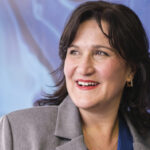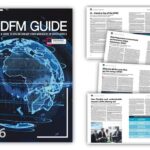One of the most challenging aspects of succession planning is deciding when and how to involve the next generation in managing the family fortune. Passing on the baton requires a delicate balance between early-stage education, inclusive communication among all family members, and a succession plan that gives everyone a seat at the table.
This is according to experts at a recent Stonehage Fleming Family Office panel discussion, which addressed the challenges and complexities of next-gen succession planning.
Timely education: When and how to prepare heirs
The consensus among the experts is clear: start early, but with age-appropriate information. Head of Stonehage Fleming Family Office Middle East & Africa, Layve Rabinowitz, emphasised that families should begin the conversation “sooner rather than later” with due consideration of what information is age-appropriate.
“One doesn’t have to start by sharing the entire family balance sheet and offshore structures with the 10 or 12-year-olds, who then share the details with their friends at school.” Rabinowitz explained, “But there’s certainly an educational process that can be worked on.”
The danger of adopting an ostrich approach, avoiding these conversations entirely, is that it almost guarantees family conflict after the parents pass away, says Rabinowitz. Families should avoid the dramatic “reading of the will” scenario where heirs are surprised by their inheritance and unprepared for the responsibilities of safeguarding the family’s wealth.
Head of Fiduciary (Jersey) Cora Binchy highlighted another crucial consideration: maintaining the next generation’s motivation to participate in the family business or managing the family’s wealth. “It’s a balance between that and pursuing their own life ambitions, rather than feeling like it’s all set out for them already.”
Structured communication: Regular family meetings
Family meetings emerged as a critical forum for managing succession and preparing heirs. Family Office Partner Thiam Marais emphasised its importance, particularly in multi-generational businesses:
Often when you get to a third-generation business, it’s not practical for all your children to be trustees or directors in the company, and for many of them, something like a family meeting is the only forum where they get a chance to air their views.
The panel outlined several best practices for effective family meetings:
- Create structured agendas: Marais advised giving “every attendee an opportunity to add to the agenda” to ensure all issues are addressed in a structured manner rather than having someone “drop a grenade” causing chaos at the meeting.
- Regular documentation review: “We like to start our meetings with a structure diagram and family tree,” said Marais, explaining that this practice helps identify changing circumstances that might affect planning, such as children relocating internationally.
- Schedule recurring meetings: Rabinowitz emphasised consistency: “The best start to a family meeting is to make sure that there is a family meeting.” He noted that many families hold one meeting and never schedule follow-ups.
- Include risk management: Despite its importance, the panel noted that only 20% of families have risk management as a formal agenda item. Rabinowitz suggested making it “a standard agenda item… even if it’s just the heading: risk.” He says it provokes conversations and thoughts.
The consequences of poor communication can be far-reaching. Binchy shared a case where a settler’s outdated trust wishes nearly created conflict: “He wanted his son to become involved in the family business. However, his son was not interested and instead became a professor of anthropology. His daughter became quite involved in the business.” This illustrates how rigid planning without ongoing communication and consideration of family members’ own life preferences can become problematic.
Advisory selection: Multi-disciplinary versus specialist
The choice between multi-disciplinary advisors and specialists depends on family needs and capabilities. Rabinowitz noted that while many families prefer the “convenience of a one-stop shop,” there’s always “a question of the independence of the advice.” This potential conflict can be managed so that it is not an impediment to the convenience afforded by a one-stop shop.
The critical factor is coordination. Rabinowitz described a wealthy family with 40 staff members in their family office, where the second-generation son’s main job was “to coordinate all the other advisors and ensure that there was synchronisation between all the advice.”
Without this coordination, serious problems can arise. For instance, a family could have different wills crafted in different jurisdictions by different advisors, but neither is valid because they revoke each other.
Binchy added that independence can be maintained even with multi-disciplinary advisors: “We work very well with other providers, advisors and family offices who want to tap into any of our comprehensive global advisory or wealth management services.”
Marais highlights that a multi-family office has to “live with its advice”. When the same team provides tax advice, trust administration, and investment management, they have a lot to lose if the initial advice isn’t sound.
Successful next-generation preparation is a multi-generational marathon fraught with external risks and inter-family challenges that can undermine both emotional and financial family wealth. It thus requires a carefully considered strategy tailored to each family’s unique circumstances, combining age-appropriate education, constant communication, and coordinated advisory relationships.













